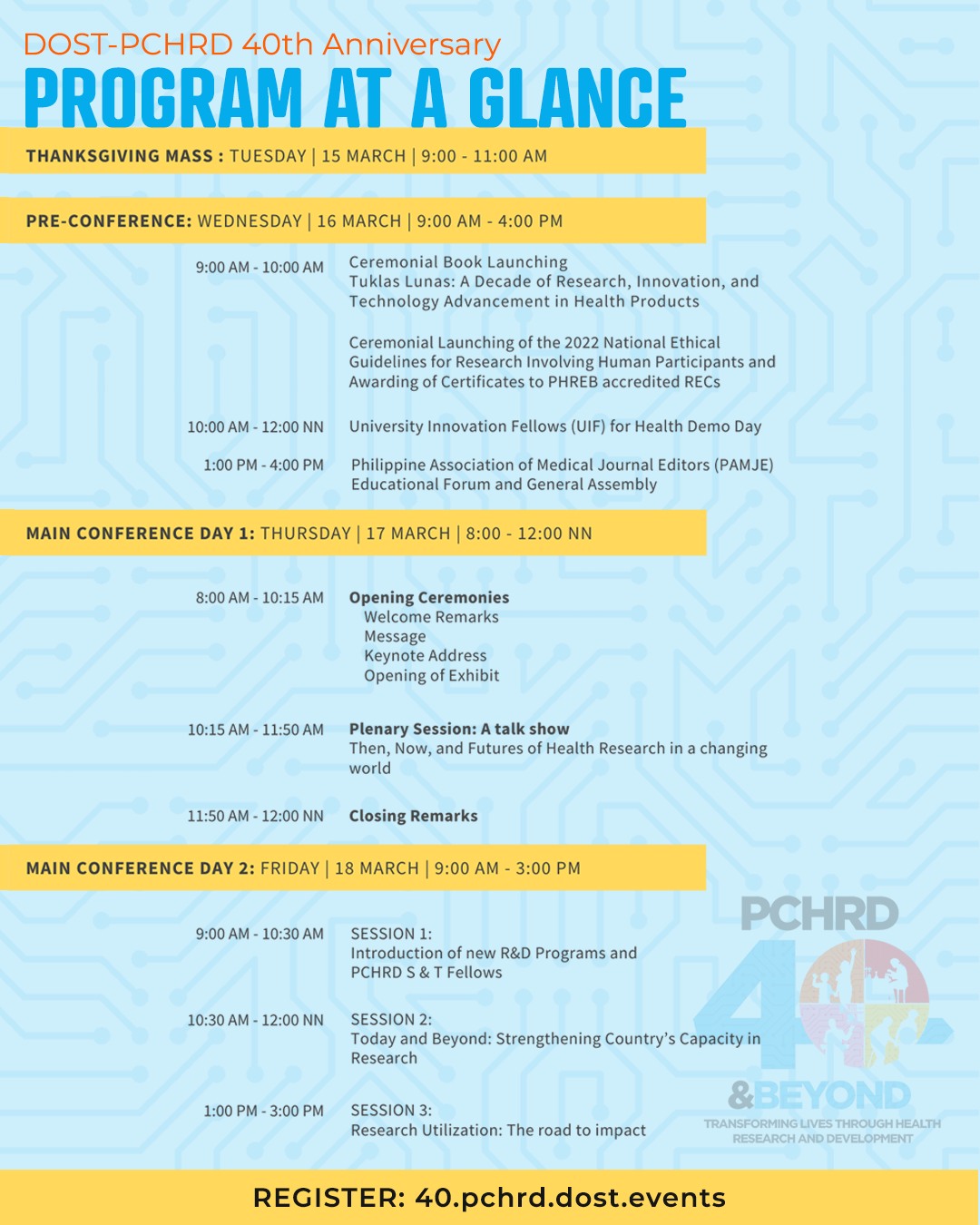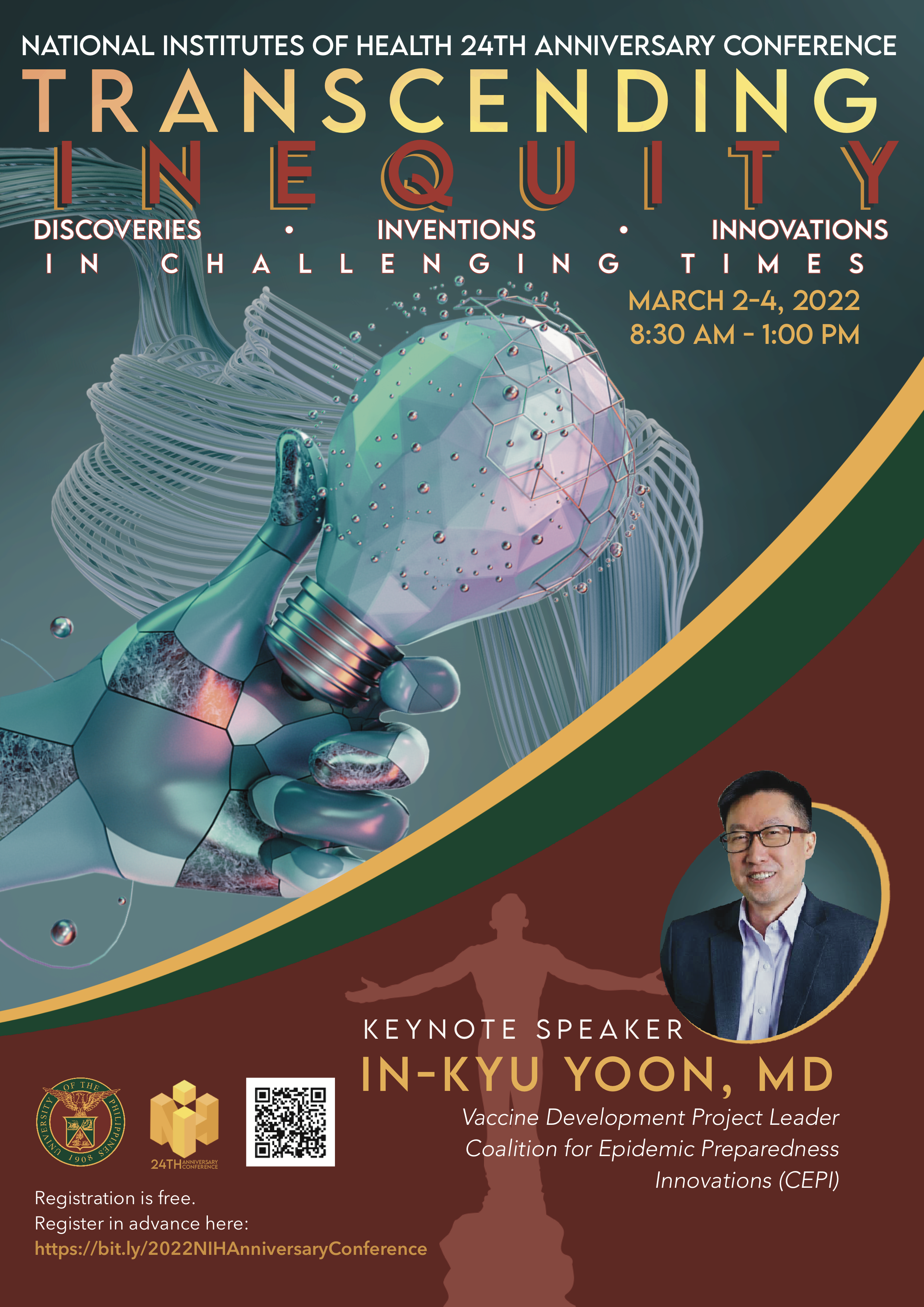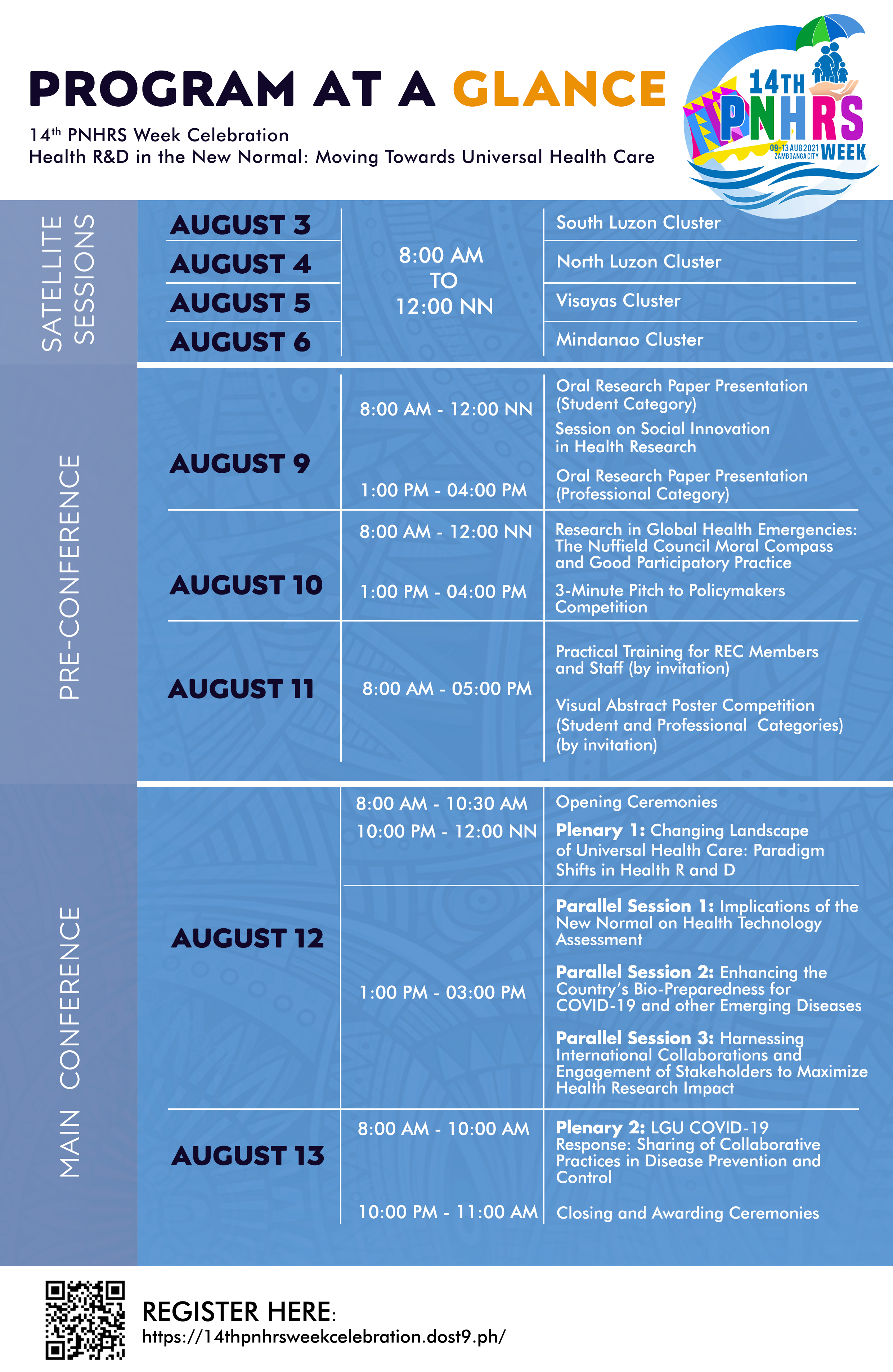- Christine Jane Gonzalez
- Latest News
- Hits: 2032
Call for applications: 2022 DOST-PCHRD- Undergraduate Thesis Grant in Natural Products
The Department of Science and Technology- Philippine Council for Health Research and Development (DOST-PCHRD) is pleased to announce the call for applications for the 2022 DOST-PCHRD- Undergraduate Thesis Grant in Natural Products.
The said program aims to sustain a research culture in natural products to increase the number of research and later on build a pool of researchers/experts specializing in the field. It supports the Tuklas Lunas program (Drug Discovery and Development Program) of the DOST-PCHRD, which aims to develop safe, effective, and affordable alternative drugs from the country’s natural resources.
Thesis grants amounting to a maximum of fifty thousand pesos (PHP 50,000.00) will be given to two (2) qualified thesis proposals per region (subject to availability of funds). Upon completion of the thesis project and submission of the required deliverables, six (6) finalists will be chosen to present their completed research during the 16th Philippine National Health Research System (PNHRS) week celebration in August 2023, wherein the top three (3) winners will be selected and recognized.
Who can apply?
The search is open to all undergraduate students of Colleges of Pharmacy, Chemistry, Nursing, and Health and Allied Sciences who have thesis proposals on natural products, specifically utilizing indigenous plants in the region. The thesis projects must be completed no later than May 31, 2023.
How to apply?
Applicants should submit the following documents to their respective Regional Health Research and Development Consortium (RHRDC):
- Duly accomplished prescribed research proposal form with college seal;
- Endorsement letter from the institution signed by the head of the university and the college dean;
- Soft copy of the proposal (word and PDF format);
- Hard copy of the proposal using A4 paper (3 copies);
- Certificate of plant authentication;
- Appropriate clearances;
- Bureau of Animal Industry clearance for studies involving animal subjects
- Biosafety Clearance for studies involving genetic engineering and pathogenic organisms
- National Commission on Indigenous Peoples Clearance for studies involving Indigenous Peoples
- Gratuitous Permit from Biodiversity Management Bureau for studies involving collection of flora and fauna from DENR Protected Areas
- Ethical clearance for studies involving human subjects
Selection Criteria
The research proposals will be rated based on the following criteria:
1. Technical merit- Objectives are specific, measurable, attainable, relevant, and time-bound;
- The study design supports the objectives; and
- The study sample and methodology are appropriate.
- The plan for data collection is clearly described;
- Quality control procedures for data collection are in place; and
- Statistical analysis is well described.
- The study addresses an important health problem; and
- The study contributes to the advancement of scientific knowledge.
- The investigators are qualified and appropriately trained to carry out the study;
- The proposed study is appropriate to the experience level of the investigators; and
- The implementing/cooperating institution is capable of carrying out the proposed study.
Thesis Grant
- Two (2) thesis proposals will be selected in each region. Researchers will receive a grant amounting to a maximum of fifty thousand pesos (PHP 50,000.00).
- The thesis grant will be deposited to the bank account of the thesis adviser and will be liquidated after the completion of the study.
- A Memorandum of Agreement will be signed between the students, adviser, head of the institution, and DOST-PCHRD.
- The grant must be expended as allocated in the approved line-item budget
Competition and Cash Awards
Six (6) grantees will be selected as finalists to present their studies during the 16th Philippine National Health Research System (PNHRS) week celebration in August 2023. The top three (3) presenters will receive the following prizes:
|
First prize = PHP 30,000.00 |
PHP 20,000.00 for the student |
|
PHP 10,000.00 for the adviser |
|
|
Second prize = PHP 22,000.00 |
PHP 15,000.00 for the student |
|
PHP 7,000.00 for the adviser |
|
|
Third prize = PHP 15,000.00 |
PHP 10,000.00 for the student |
|
PHP 5,000.00 for the adviser |
|
|
Consolation prize |
PHP 5,000 per group |
Finalists will also receive a plaque of recognition.
Schedule of Activities
|
ACTIVITY |
DATE |
|
Call for Applications |
March to May 2022 |
|
Deadline of submission to the consortium |
May 31, 2022 |
|
Endorsement of shortlisted entries to DOST-PCHRD |
June 18, 2022 |
|
Evaluation of thesis proposals by the Selection Committee and Provision of grants to selected grantees |
June to July 2022 |
|
Conduct of study |
August 2022 to May 2023 |
|
Submission of completed studies to DOST-PCHRD |
June 5, 2023 |
|
Selection of oral presenters by the Selection Committee |
June to July 2023 |
|
Oral Presentation and Announcement of Winners |
August 2023 |
For inquiries, please email This email address is being protected from spambots. You need JavaScript enabled to view it..



